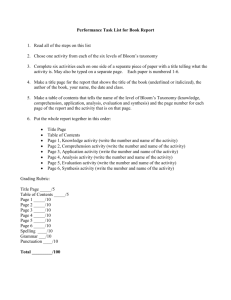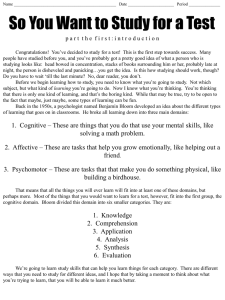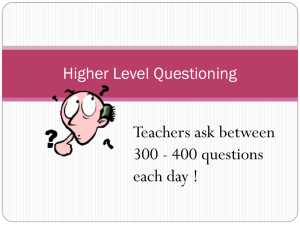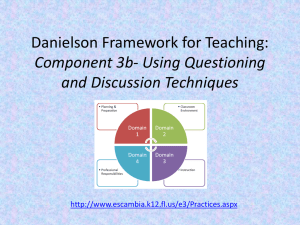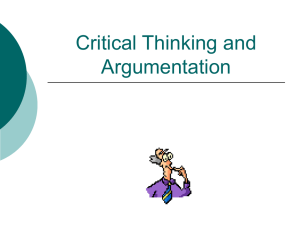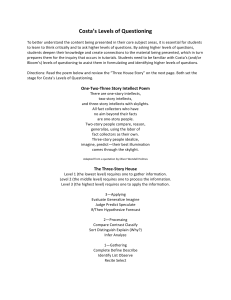Bloom’s Levels of Questioning Tutorial Questions for English & Social Science 1. K
advertisement
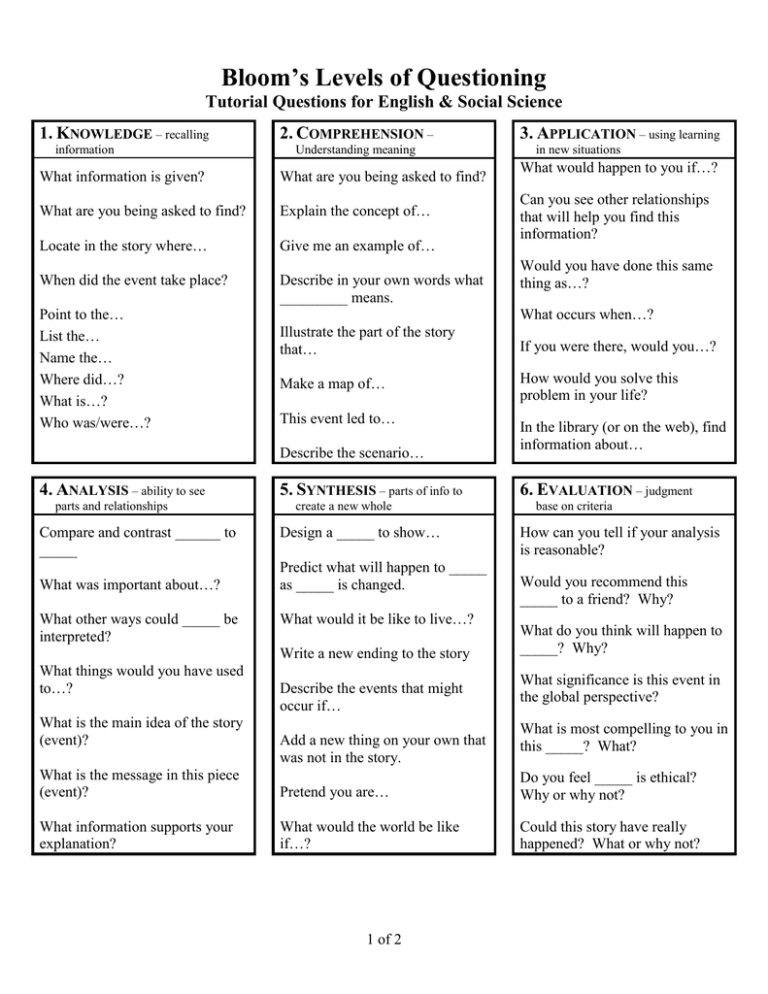
Bloom’s Levels of Questioning Tutorial Questions for English & Social Science 1. KNOWLEDGE – recalling information 2. COMPREHENSION – Understanding meaning What information is given? What are you being asked to find? What are you being asked to find? Explain the concept of… Locate in the story where… Give me an example of… When did the event take place? Describe in your own words what _________ means. Point to the… List the… Name the… Where did…? What is…? Who was/were…? parts and relationships Compare and contrast ______ to _____ What was important about…? What other ways could _____ be interpreted? What is the main idea of the story (event)? What would happen to you if…? Can you see other relationships that will help you find this information? Would you have done this same thing as…? Illustrate the part of the story that… If you were there, would you…? Make a map of… How would you solve this problem in your life? This event led to… 5. SYNTHESIS – parts of info to create a new whole Design a _____ to show… Predict what will happen to _____ as _____ is changed. What would it be like to live…? Write a new ending to the story What things would you have used to…? in new situations What occurs when…? Describe the scenario… 4. ANALYSIS – ability to see 3. APPLICATION – using learning Describe the events that might occur if… Add a new thing on your own that was not in the story. In the library (or on the web), find information about… 6. EVALUATION – judgment base on criteria How can you tell if your analysis is reasonable? Would you recommend this _____ to a friend? Why? What do you think will happen to _____? Why? What significance is this event in the global perspective? What is most compelling to you in this _____? What? What is the message in this piece (event)? Pretend you are… Do you feel _____ is ethical? Why or why not? What information supports your explanation? What would the world be like if…? Could this story have really happened? What or why not? 1 of 2 Bloom’s Levels of Questioning Tutorial Questions for Science & Math 1. KNOWLEDGE – recalling information 2. COMPREHENSION – understanding meaning 3. APPLICATION – using learning in new situations What additional information is needed to solve this problem? What information is given? What are you being asked to find? What are you being asked to find? Explain the concept of… What formula would you use in this problem? Give me an example of… Can you see other relationships that will help you find this information? Describe in your own words what _________ means. How can you put your data in a graphic form? What (science or math) concepts does this problem connect to? What occurs when…? What is the formula for…? What does ____ mean? List the… Name the… Where did…? What is…? Who was/were…? When did…? 4. ANALYSIS – ability to see parts and relationships Compare and contrast ______ to _____ Draw a diagram of… Illustrate how ____ works. Explain how you calculate… 5. SYNTHESIS – parts of info to create a new whole Design a lab to show… What was important about…? Predict what will happen to _____ as _____ is changed. Which errors most affected your results? Using a principle of (science or math), how can we find…? What were some sources of variability? Describe the events that might occur if… How do your conclusions support your hypothesis? Design a scenario for… What prior research/formulas support your conclusions? How else could you account for…? Pretend you are… What would the world be like if…? How would you change your procedures to get better results? What method would you use to…? Does it make sense to…? 6. EVALUATION – judgment base on criteria How can you tell if your answer is reasonable? What would happen to ____ if ____ variable was increased or decreased? How would repeated trials affect your data? What is the significance of the experiment or formula? What type of evidence is most compelling to you? Do you feel _____ experiment is ethical? Why or why not? Are your results biased? 2 of 2

